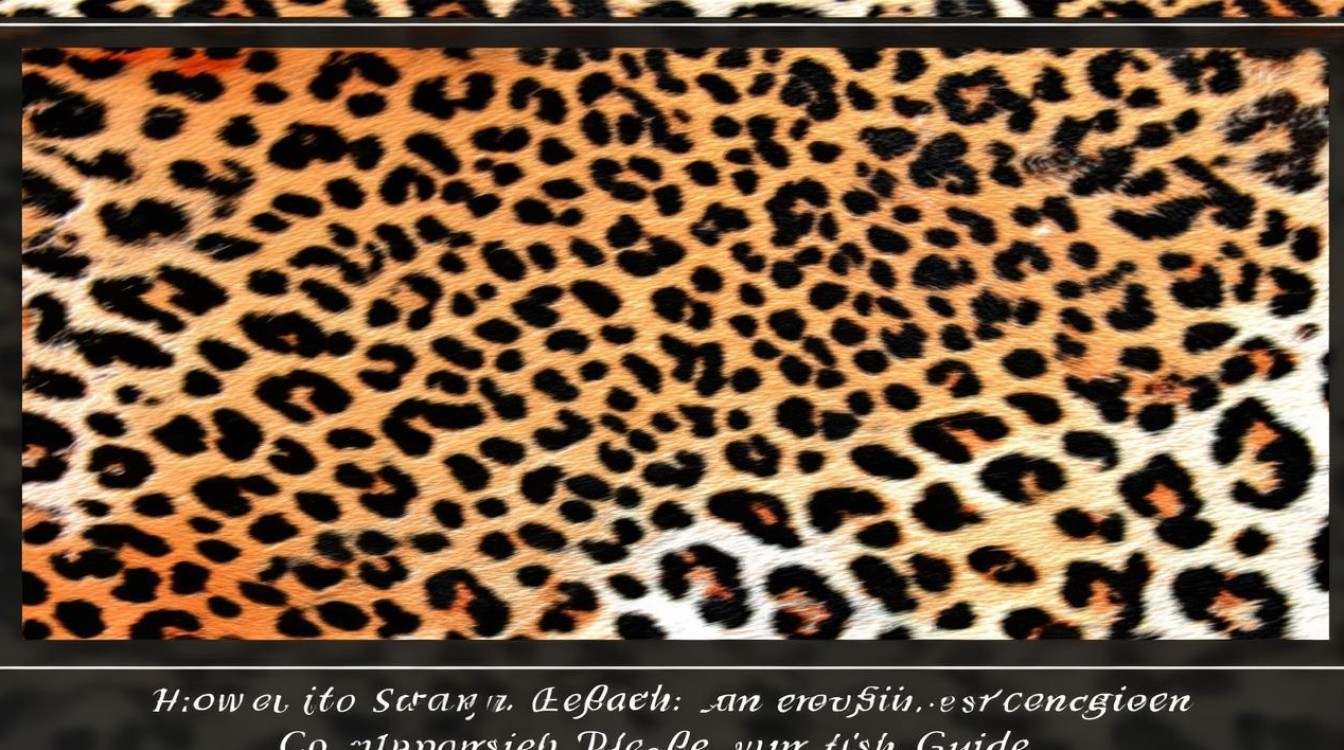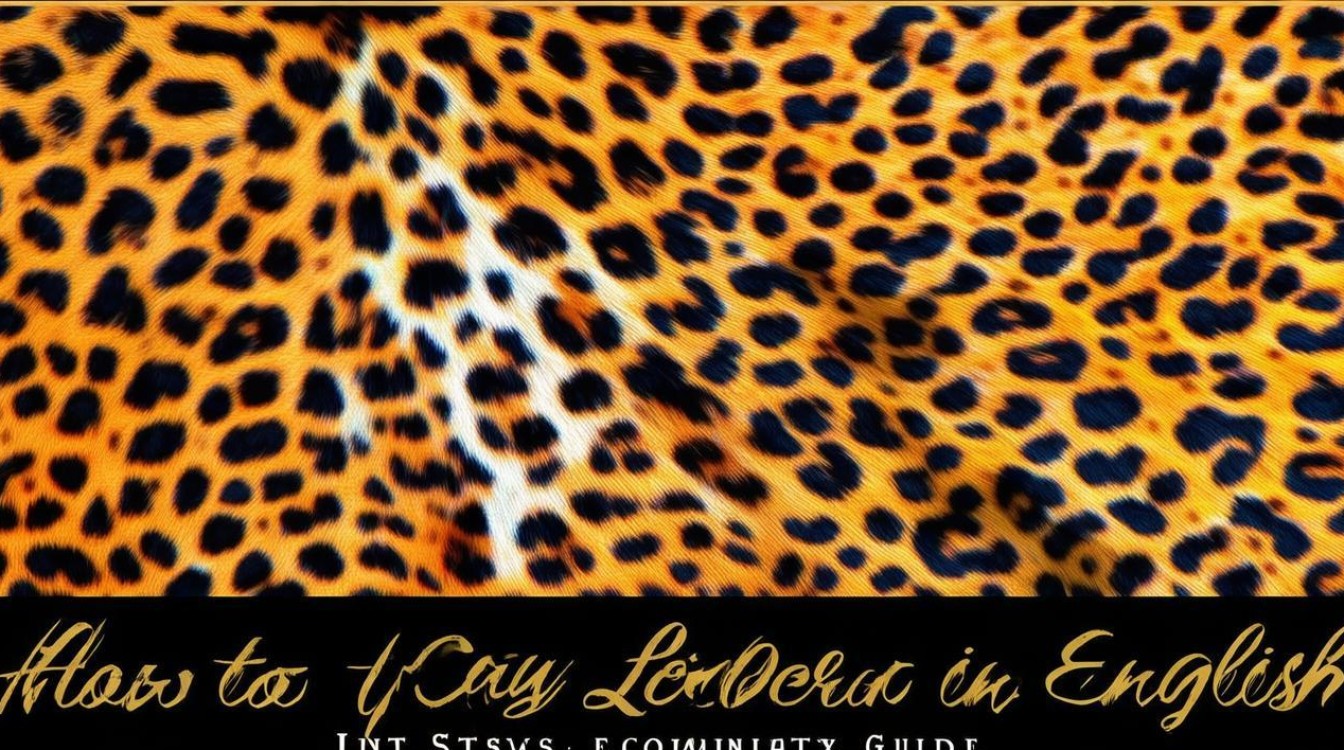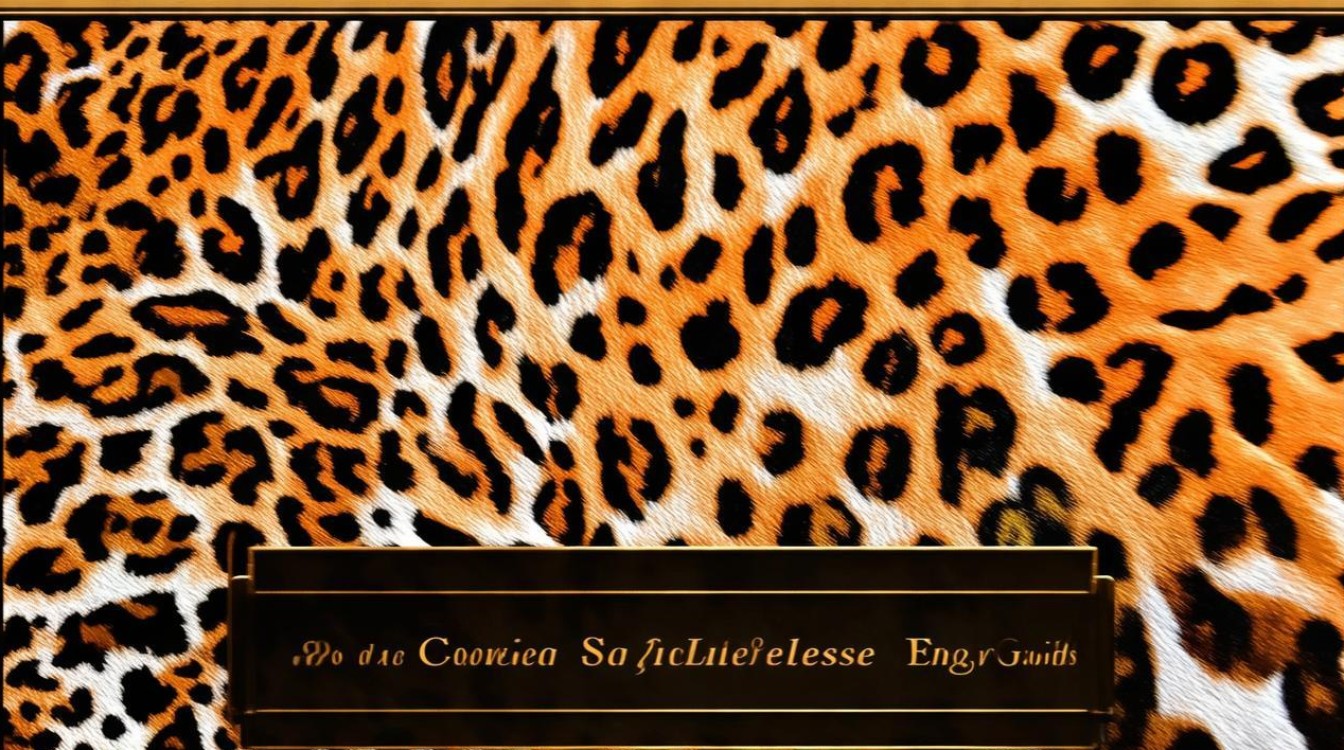The word "leopard" is one of the most recognizable animal names in English, but its origins, pronunciation, and usage may still raise questions for learners. Whether you're a student, a wildlife enthusiast, or simply curious about language, understanding how to say "leopard" correctly—and its related terms—can enrich your vocabulary.

The Correct Pronunciation of "Leopard"
In English, "leopard" is pronounced as /ˈlep.ərd/ (LEP-erd). The stress falls on the first syllable, and the "o" is silent. Some non-native speakers mistakenly pronounce it with an "o" sound, but the correct form follows the phonetic breakdown:
- First syllable: "lep" (rhymes with "step")
- Second syllable: "ərd" (a soft, unstressed "erd" sound)
For clarity, you can listen to native speakers on platforms like Cambridge Dictionary or Forvo to master the pronunciation.
Etymology: Where Does "Leopard" Come From?
The word "leopard" has a fascinating history. It originates from the Greek "leopardos," which combines "leon" (lion) and "pardos" (panther). Ancient Greeks believed the leopard was a hybrid of these two big cats, though we now know it’s a distinct species. The term passed into Latin as "leopardus" and later into Old French as "leupart," before evolving into the modern English "leopard."
Leopard vs. Similar Big Cat Names
People often confuse leopards with other spotted felines. Here’s how to distinguish them:

- Cheetah (Acinonyx jubatus): Known for speed, cheetahs have solid black spots and a slender build.
- Jaguar (Panthera onca): Larger than leopards, jaguars have rosettes with central dots and live in the Americas.
- Panther: A term for black leopards or jaguars due to melanism, not a separate species.
Using the correct name avoids misunderstandings, especially in scientific or conservation contexts.
Leopard in Different English Dialects
While "leopard" is standard globally, regional accents may slightly alter pronunciation:
- British English: Often emphasizes the first syllable more clearly (/ˈlep.əd/).
- American English: May slightly soften the "r" sound (/ˈlep.ɚd/).
Spelling remains consistent, though older texts might use archaic forms like "lybard" in Middle English.
Common Phrases and Idioms Featuring "Leopard"
The leopard appears in several English expressions, often symbolizing strength or unchanging nature:

- "A leopard can’t change its spots": Means people can’t alter their inherent traits.
- "Leopard print": Refers to the distinctive spotted pattern used in fashion.
- "Leopard crawl": A military term for moving stealthily on the ground.
These phrases show how deeply the animal is embedded in language and culture.
Scientific and Conservation Context
In zoology, the leopard’s Latin name is Panthera pardus. Conservationists use this term to classify subspecies like the Amur leopard (Panthera pardus orientalis) or African leopard (Panthera pardus pardus). Knowing these terms helps when reading research papers or supporting wildlife protection efforts.
Leopard in Literature and Media
From Rudyard Kipling’s "The Jungle Book" (where the leopard is a cunning hunter) to modern documentaries, the animal frequently symbolizes stealth and adaptability. Recognizing its name in English lets you engage more deeply with these works.
Tips for Remembering the Word
If you struggle with spelling or pronunciation, try these tricks:

- Break it down: "Leo" + "pard" (though the "o" is silent).
- Visual association: Picture a leopard’s spots forming the letters L-E-O-P-A-R-D.
- Mnemonic: "Lazy Elephants Often Prefer A Restful Day" (first letters spell "leopard").
Common Mistakes to Avoid
- Mispronunciation: Avoid saying "lee-oh-pard" or "lay-oh-pard."
- Spelling errors: Common misspellings include "leoperd" or "lepard."
- Confusing with other cats: Don’t call a cheetah or jaguar a leopard.
Final Thoughts
Mastering the word "leopard" goes beyond memorization—it connects you to biology, language history, and cultural references. Whether you’re discussing wildlife, fashion, or idioms, using the term accurately showcases your language skills. Next time you see this majestic cat in a documentary or a book, you’ll appreciate the richness behind its name.
For further learning, explore resources like the Oxford English Dictionary or wildlife documentaries narrated by native speakers. The more you immerse yourself in authentic English, the more natural these words will become.

